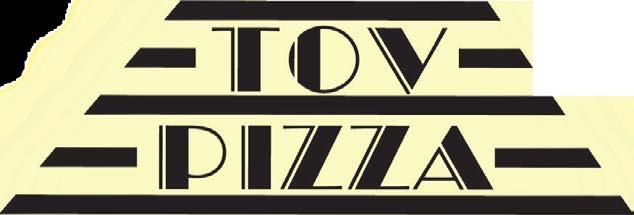
5 minute read
JEWISH THOUGHT
A View from the Mountaintop
By Rabbi Zvi Teichman
Advertisement
So much death. So much illness. So much frustration. So much financial insecurity. So much anxiety over what possibly awaits us up ahead.
A year ago I wrote an essay, in a different forum, based on a remarkable insight from the Holy Ishbitzer as recorded in his seminal work, Mei HaShiloach, that is almost prophetic in its precise relevance to every facet of our current state. I share it here in the hope that you will be as uplifted as I was, and that it will inspire us to deal effectively with the great challenges we face.
Life is filled with disappointment.
Inevitably we each face loss of loved ones during our sojourn on this earth. We often must deal with the difficulties of infirmity or injury. The sudden twists and turns in daily life that disrupt our carefully organized plans and expectations certainly dampen our joy and sense of security on a regular basis. Financial struggle and loss too, is a recurring challenge. Even when life seems to be ‘traveling along’ fairly, the anxieties over when will the ‘ax finally fall’ on our party, permeate our sense of equilibrium
Some thingS only an expert can detect.
like differenceS in inSurance policieS.
Wealcatch Insurance offers you a wide array of policies and provides side-by-side comparisons, so you get the best coverage, at the most affordable price.
constantly.
These trials in life prod frustration and doubt, leading us to question G-d’s interest in us at best, or His very existence at worst. Even those who remain steadfast in their faith often detour into dangerous self-recrimination and lack of self-worth, descending into depression and despair.
The Holy Izhbitzer fascinatingly observes how the first five subjects discussed in our portion reflect directly upon these daily stressors.
A kohen despite his noble calling must deal with the loss of those relatives closest to him. His personal trauma is intensified as he generally must keep away from contact with the dead, with this being his first encounter ‘face to face’ with death. The Kohen Gadol has an additional challenge as he must refrain not only from contact with his dearest departed ones, but he must also remain on duty in his regular schedule at the Temple, being denied the ability to mourn and benefit from its cathartic process. It’s not fair!
The next discussion relates to a kohen who develops a blemish that disallows him from serving in the Temple. Imagine his anguish in realizing that although In a world, post the sin of the Golden Calf, where we must still endure illness and death, the antidote to avoiding frustration from this reality lays in the fact that each one of us is defined by the Torah that speaks to us not only collectively, but individually as well. Every one of our circumstances in life were uniquely crafted to bring out our personal greatness. When we implement the Torah’s precise guidance for every given situation in life we face, we realize that our deficiencies were specifically orchestrated so that we may become truly ‘whole’ and complete. Life is fair.
The greatest tumah, is the impurity that stems from depression. We get depressed when we feel isolated and neglected. The situations in life that seem so random and in conflict with our greatest efforts to connect with G-d, are merely illusions and distractions. G-d is ever present and beside us, we just must open our ears to hear His call, His voice. The voice that emanated from Sinai is constant. The Shofar of Rosh Hashana is the ‘sound machine’ that cancels out all external noise, attuning our ears to the whispered breath of G-d that continues to encourage us lovingly at every point in life. Life is fair!
On Yom Kippur we take a break from the shackles of our material bodies and needs, transforming ourselves into virtual angels. The physical world is merely the playing field where we discover our true essence, our deeper souls. It is not what we can physically offer in tribute to the Almighty that defines us as much as it is the yearning for closeness which can be achieved absent of any material offering. Life is fair!
Finally, the holiday of Sukkos teaches us that we ride upon the proverbial shoulders of our father every moment of our lives. When we commemorate the actual Clouds of Glory, we are declaring an awareness of His protection even when those clouds are invisible. In that reality there is no room for worry. Each day in the embrace of G-d infuses us with the security resembling that of a child in the womb of its mother, who simply senses it is being nurtured and cared for, with nary a fear or worry. Life is fair!
The Torah perhaps taught us this vital lesson in the context of the exalted and exceptional family of the kohanim to emphasize that no matter where one finds himself on the ladder of achievement, we all face moments of stress, confusion and fear. No one is excluded from these tests of faith.
So, the next time you face the pain of loss, soothe the wound with the knowledge that it is merely an interval, and the journey continues.
When you feel shortchanged by your limitations, remember in overcoming those insufficiencies lay your perfection.
When tootling down the road of life you get a flat tie, do not forget, G-d is right there next to you changing the tire.
When you feel down by the inability to contribute due to a lack of resources, realize that your frustrated yearning is more valuable than the fattest offering.
When you fret over what the next day may bring, visualize that no matter what that may be, you will always be sitting confidently on your Father’s shoulder.
EST 1984












